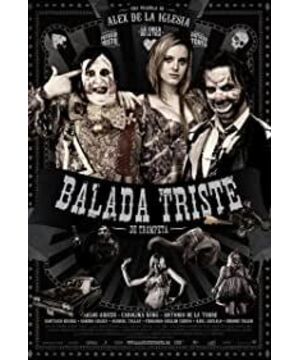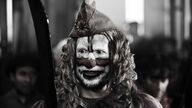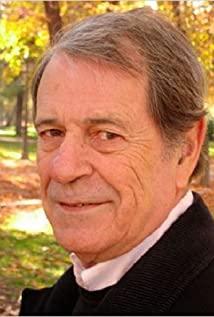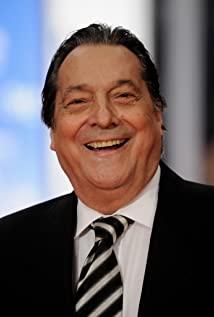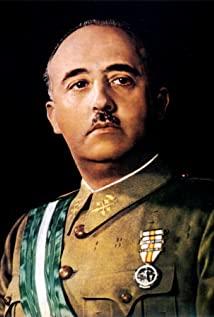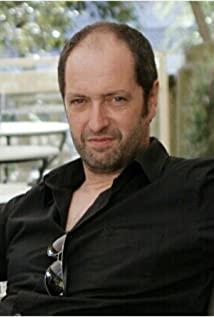The page is full of stars from various countries and various participating films, and one of the posters attracted me. There were two spooky clowns and an actress in the poster, and I was curious, so I watched the introduction of the film. Only then did I know that it was a Spanish entry film, telling the story of the Spanish Civil War and the post-war period. I'm very interested in this subject. I know Franco's decades-long dictatorship in Spain, but I've never seen any literary works in this area. So get ready to feast your eyes.
Before watching, I went to the movie review site to check it out. Somewhat to my surprise, this Spanish film, which has not been promoted in China at all, has a large number of fans paying attention, and it has aroused all kinds of heated discussions. The comments are basically divided into several categories. Some people say that this movie is disgusting and perverted, some people say that they don't understand what it means, and some people say that this is a profoundly good movie. How can people's reviews of the same movie be so different? I can't help but be more curious. With these questions and curiosity, I started watching this movie.
The version I watched had Chinese subtitles. It didn't take long for me to watch it, and I was deeply shocked. This film always wanders between gloom and joy, sometimes making people see hope, and sometimes letting people see disappointment, gloom and joy are interlaced, twisting, changing, tight like a snake. Hold on to people's hearts.
It began during the Spanish Civil War in the 1930s, when a circus was doing a comedy for children when gunshots rang out outside. The actors who abide by professional ethics continued to perform. At this time, the soldiers broke into the circus tent without warning, forcing all the circus personnel to join the army, and immediately start a war with the enemy outside. The actor who played the joyful clown didn't even have time to take off his clown suit and joined the fight unprepared. With a red nose that made the children laugh, he wore a comically oversized suit, and he fought his way with a battle axe. The humorous modeling and the tragic and bloody scenes have produced a sharp contrast, which is extremely shocking. In the end, the party with the circus members was wiped out and captured because they were outnumbered. The clown also became one of the captives.
The second shot is several years later, the clown's son Javier came to the clown. The detained clowns said they were building a big cross, which is actually a foreshadowing, and there will be related plots and its response later. Javier said that he will play a happy clown like his ancestors did in the future. But the clown told him that he could only play a sad clown because he had witnessed too much suffering. And remember to take revenge later. Javier saw that his father was in pain, so he came up with an idea. He came to his father's construction site with explosives, organized a riot, and wanted his father to take the opportunity to escape. But his father was killed by an officer on horseback just as he was about to escape, and Javier left the scene angrily wounding the officer.
This is the hero Javier's first revolt against oppression. The murder of his father is the seed of pain buried in his heart, and it is also the direct source of his future actions.
After a few more years, the war was over, but Spain was still under the rule of the dictator Franco. Under this distorted system, various distortions have also occurred in all aspects of society. Spain's economic growth rate at that time was the second largest in the world, second only to post-war Japan. Moreover, Franco is not just a hard-line approach to the people. However, this seemingly peaceful society hides various crises. No matter what it looks like, its essence is still a dictatorship that deviates from democracy. All kinds of contradictions have been suppressed and suppressed, waiting to be triggered.
At this time, the clown's son Javier came to a circus to be a sad clown. As soon as he arrived here, he was attracted by Natalia, a beautiful acrobat performing silk dances. Natalia was so sunny, so happy, and it touched Javier's heart deeply. But Javier baffles him when he finds out that Natalia is in a relationship with Sergey, the rambunctious, domineering happy clown. When Sergey is slightly dissatisfied with Natalia, he will beat her and kick her, and the whole circus people are watching for Sergey, and no one dares to care. These all deeply hurt Javier's heart.
Meanwhile, Javier, the kind and sad clown, also attracts Natalia's attention. Natalia is very contradictory. She wants to leave her boyfriend who beat her, but there seems to be something that keeps her from leaving. At the same time, she can't restrain her getting closer and closer to Javier. She asked Javier to go to an amusement park in France. There is an important hint here that France has always been a free country, and this represents Natalia's desire for freedom and freedom from bondage. Sergey the happy clown is the embodiment of dictatorship, Natalia is the embodiment of ordinary people, and Javier the sad clown who dares to speak out against the happy clown is the embodiment of opposing the dictatorship.
The relationship between these three people shows that the dictator gives all kinds of sweetness to the people while violent, making the people feel that they can't do without it, and when the opposition appears, the people begin to waver.
Natalia and Javier go to Paris to play and are found by Sergey. Sergey beats Javier hard and takes Natalia away. When Natalia went to the hospital to visit Javier, she said she would return to the Happy Clown for his safety to ease the conflict. Javier was very distressed after hearing this. He sneaked back to the circus in the middle of the night, and happened to see Sergey and Natalia making out together. Javier, who was furious, felt that Sergey was hurting Natalia again, so he picked up an iron Hook disfigures Sergey.
This is where the story takes a dramatic turn. Javier felt that he had saved Natalia, but Natalia was at a loss. Facing the arrest of the police, Javier hurriedly fled into the jungle. The entire circus, which was once bullied by Sergey, hurried to find a doctor for Sergey, and finally sewed Sergey's broken face together. Due to the urgency of time, they could not find a doctor and had to find a veterinarian. The veterinarian's wife is very opposed to using animals to treat people, warning that they will pay the price for today's practice.
This passage is about when the opposition hit the dictator hard and thought that the people would be saved and would be grateful to them, but the people who have been ruled for a long time and raped by public opinion have lost their ability to analyze, they are just at a loss, and they are still dying. dictatorship. Still trying to save it. But at this time, there is no normal way to save it, this rule is riddled with holes and in jeopardy, as difficult to restore as Sergey's broken face. And the people use veterinarians to treat people's illnesses without any means, and even if the dead horse of the dictatorship is treated as a living horse doctor, it will also be brought back to life. In the end, the veterinarian's wife's words are warning these people that they will suffer the consequences of their own actions.
Javier, who escaped into the jungle, was far away from human life and began to live a life of drinking blood in the forest. One day, a colonel found him while hunting and brought him back. The colonel recognized Javier by his necklace. The colonel was the officer who killed Javier's father and was injured by Javier. This coincidence is full of irony. The men asked the colonel what to do with Javier, and the colonel said let him do the work. This symbolizes the oppression of the people by the dictatorship.
At this time, the colonel invited the dictator General Franco to hunt with him. Javier was with the hound and was asked to take the prey in his mouth. Franco was very sympathetic when he saw Javier who was kneeling down and stalking prey, and asked him to stand up, but Javier bit Franco's hand. This symbolizes Franco's attitude towards the people who are both soft and hard, hypocritical and hypocritical, and the people have already seen his true colors and do not appreciate him.
Javier is imprisoned. At this time, he ruined his appearance with caustic soda and an iron, and completely broke with the cowardly image of the past. The dictatorship has forced a kind-hearted person into a ghost. He saw Natalia in a trance, and again he felt that he should go and save him. With such a self-perceived mission in mind, he found a weapon, shot all the way and rushed out.
The opposition at this time has completely evolved into using violence to overthrow the dictatorship, becoming as violent and bloody as the dictatorship.
When Javier finds Natalia, the terrified Natalia no longer recognizes the unrecognizable person. At the same time, Sergey, who is also beyond recognition, also found Natalia. Natalia faces a choice before them again. In the end Natalia chose Serge.
When the pro-democracy opposition also becomes violent, people tend to choose a dictatorship that has faded, at least it is familiar to them, and they know nothing about the future promised by the opposition, and they are more afraid.
In the end, Javier was going to use violence to grab Natalia back. When he walked to the street to grab Natalia, there was an explosion. This was a real assassination of the dictator in Spanish history. . Javier takes Natalia to a mysterious place, where the cave is full of skeletons. Javier tells Natalia that his father died here, and this is where the big cross his father said was built. This cross is also real. It is the location of the tomb of the dictator Franco, who used a large number of opposition prisoners of war for the construction of the tomb.
This is when the symbolism of the film reaches its climax. Sergey also knew where Javier and Natalia were going, and went with the military and police who captured Javier. In the end, the three met unexpectedly, and Sergey and Javier fought a bloody fight for Natalia. The three scuffled up to the large cross above the dictator's tomb. Natalia seemed to realize it at this time, and stood on Javier's side, wrapping her body in silk and swaying down in order to escape the dying Sergey. This was her specialty in the circus, but the silk and satin got stuck in mid-air. Natalia died between the cross and the ground, only one step away from freedom, and finally survived to get rid of that symbol of dictatorship and injustice. Freedom Cross. All efforts to pursue democracy and freedom have so failed and failed so prematurely.
Sergey and Javier were unharmed and were taken into the police car together. The film ended with the two of them crying and laughing as if they had realized something.
The final part of the film is the climax of all the contradictions, the dictator who has faded and the opponent who is getting stronger but becoming bloody and approaching dictatorship are both competing for the people, and both are equally mad and do anything, and the poor people are crazy on both sides. suffered enormous damage in the struggle. In the end, neither of the two forces gained the people, but instead hurt the people even more, and the people did not get the democracy they long for. This result is very thought-provoking.
The film is called "Sad Trumpet" because Javier, after becoming tyrannical, happened to hear a clown's sad singing and was deeply attracted. This song is full of confusion, helplessness and despair, just like the situation of Javier who opposed the dictatorship at that time. He understood the pain of the people and wanted to save the people, but he didn't know what method to use. In the end, he couldn't do it and went astray. , using the same method as dictatorship to suppress violence, gradually became dictatorial, and finally deviated from his original intention and did not save the people. This song also establishes the deep and sad tone of the film. This is a sad song of history. During the decades of the dictatorship and later the struggle between the opposition and the dictator, the people suffered a lot in the tug-of-war that finally disguised, and some The suffering is not superficial, but a heavy blow to society, culture, discourse and democracy.
If you know the history of Spain, this is a very good and in-depth film. It shows the reality in an extremely exaggerated and vivid way, just like the Latin American fantasy novel "One Hundred Years of Solitude", showing the society for decades. The changes of people and people's hearts allow you to see a Ukiyo-e of social life vividly and vividly. In addition to reflection, people are deeply moved by this distinctive artistic technique.
This article is also included in the blog I wrote today, http://blog.sina.com.cn/s/blog_4ca889a801013xg7.html , welcome to read
View more about The Last Circus reviews


